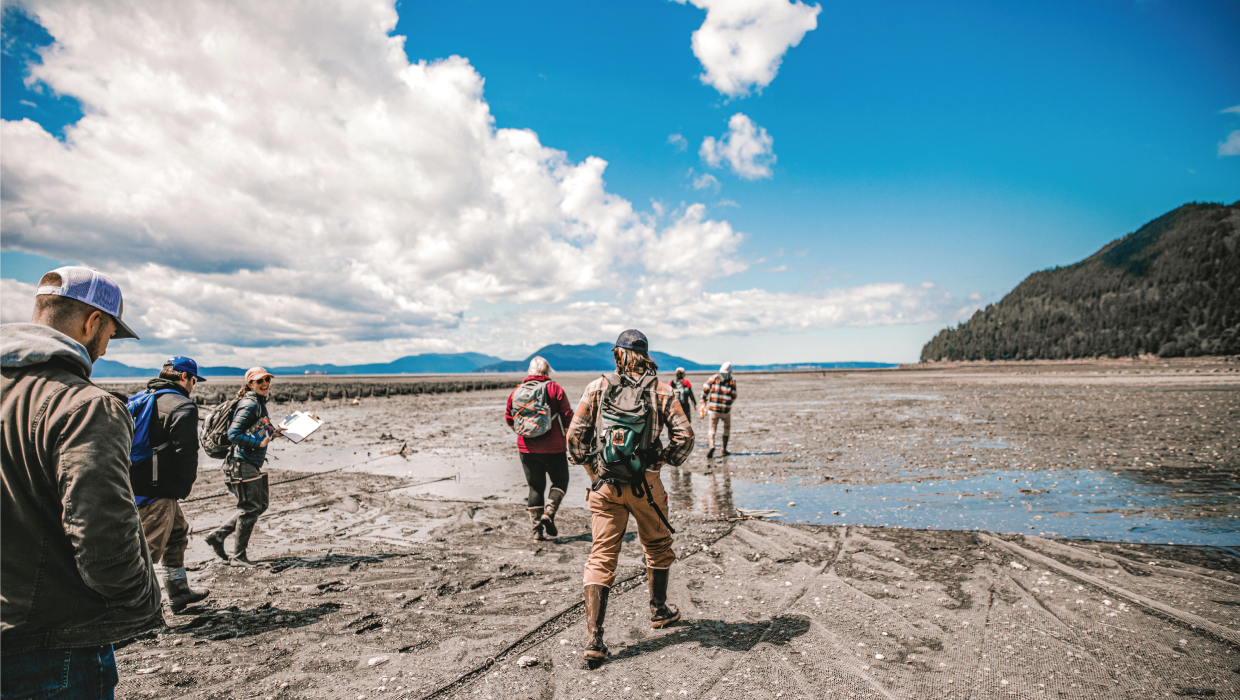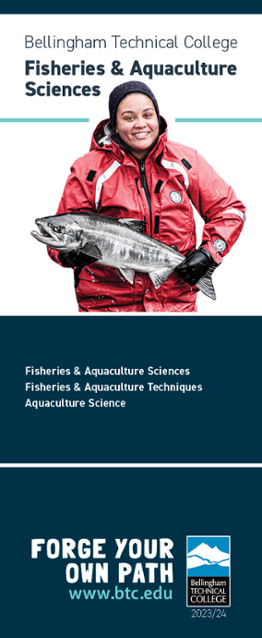Fisheries & Aquaculture Sciences
Fisheries & Aquaculture Sciences Winter Tours are open now!
Tours of the program's training facility are available throughout Winter Quarter.
Sign up for a tour Monday, Thursday or Friday, and start your application so you're ready to go when enrollment for Spring Quarter classes opens March 9.
BTC’s programs in Fisheries & Aquaculture Sciences are ideal for students who want to leave the office behind and prepare for careers in salmon and trout hatcheries, fisheries management, and sustainable seafood. The Fisheries & Aquaculture Sciences program offers hands-on training in real-world settings, covering technical skills such as finfish husbandry, aquatic conservation and restoration techniques, shellfish and algae culturing, and fisheries population monitoring.
Learn essential skills in salmon and trout hatchery operations alongside Washington Department of Fish and Wildlife employees at a variety of facilities, including the student-run Whatcom Creek and Bellingham Hatcheries. Students gain in-demand skills by raising over 2 million salmon and trout annually to support local commercial, tribal, and recreational fisheries.
Go beyond the textbook and spend your class time outside. Students learn the foundations of fisheries management through intensive field training, including electrofishing, beach seining, habitat surveying, and more. Picture yourself snorkeling for fish abundance, kayaking to monitor invasive species, or exploring the biodiversity of tidal flats.
Join the next generation of the blue revolution through sustainable seafood production. Finfish, shellfish, and algae are essential to provide aquatic protein and nutrients to feed the world’s growing population. In our training hatchery, students gain hands-on experience in sustainable aquaculture, including shellfish hatchery production, algae culturing, and aquaponics. Students also learn from local experts through farm training and practicing skills directly with industry partners.

“It’s the two-year degree that gets your foot in the door. You meet the co-managers and meet people locally in the community, and once you’ve finished with the program, you already have a lot of connections.”
-Taylor Solomon, Fisheries program graduate and Lummi Nation Natural Resources employee
Degrees & Certificates
Here are the Degrees & Certificates you can earn in this area.
Aquaculture Science
Aquaculture - Fish Specialization (AAS)
Aquaculture - Shellfish Specialization (AAS)
Aquaculture Theory (Certificate)
Salmon and Trout Culturing Techniques (Certificate)
Seaweed and Mollusk Culturing Techniques (Certificate)
Aquatic Science
Aquatic Sciences (AAS-T)
Fundamentals of Aquatic Sciences (Certificate)
Fisheries Science
Fisheries Science (AAS)
Fisheries Field and Lab Techniques (Certificate)
Degree & Certificate Definitions
Associate of Applied Science (AAS) degree:
A two-year associate degree that allows you to go directly to work in your field.
Associate of Applied Science-Transfer (AAS-T) degree:
A two-year associate degree with transferable general education courses that allows you to either go directly into your field, transfer to a specific program at a four-year college or university, or prepare for your bachelor of applied science degree at BTC.
Certificates:
Certificates are academic credentials that can be earned in a shorter time than degrees, and which provide you with a set of skills to find a job or stay current in your field. Certificates typically last six months to one year, and some are designed to build on top of each other or eventually to a longer-term certificate or degree. Many certificates are financial aid eligible, so explore certificates now and find out if one is right for you.

